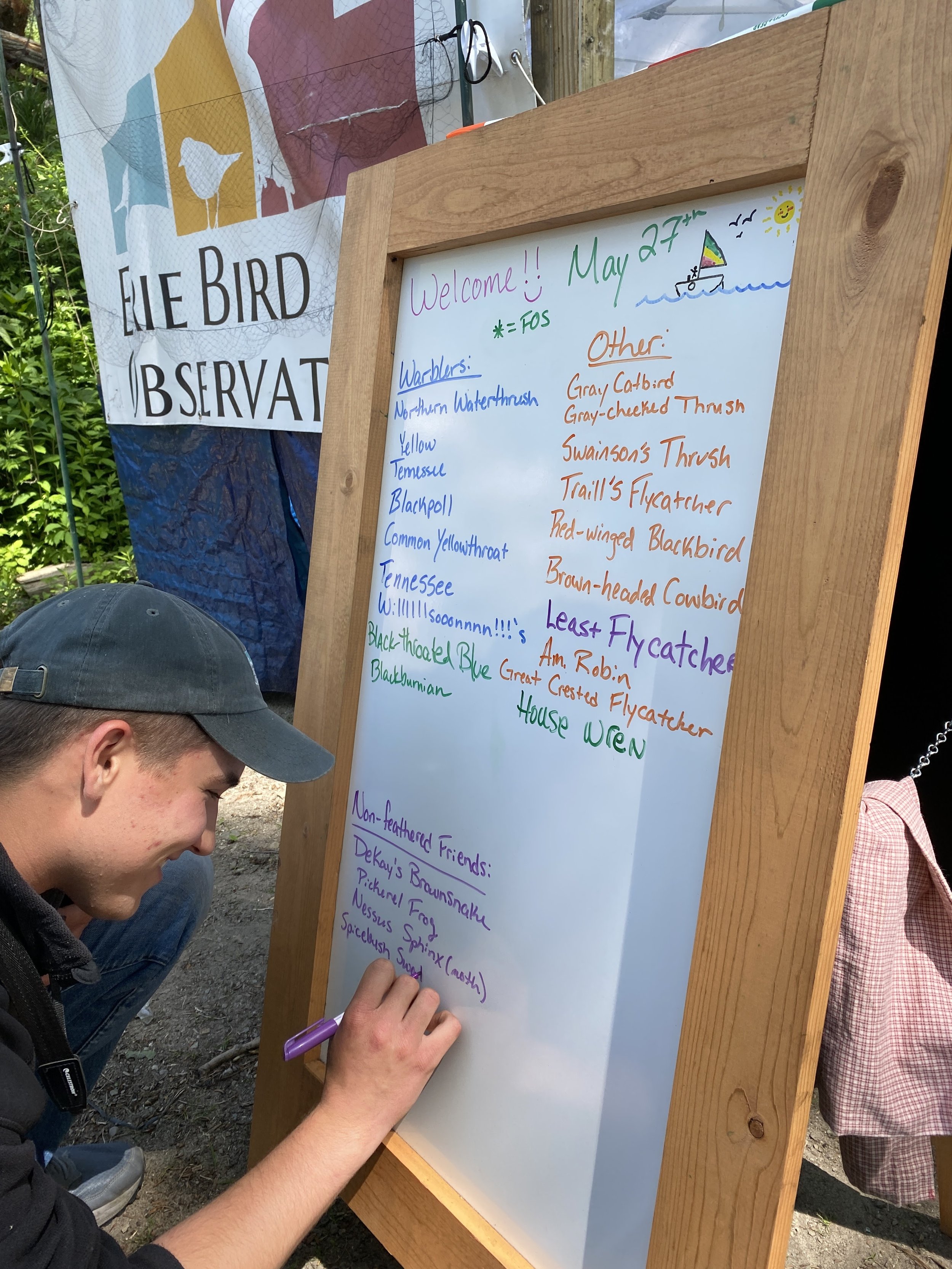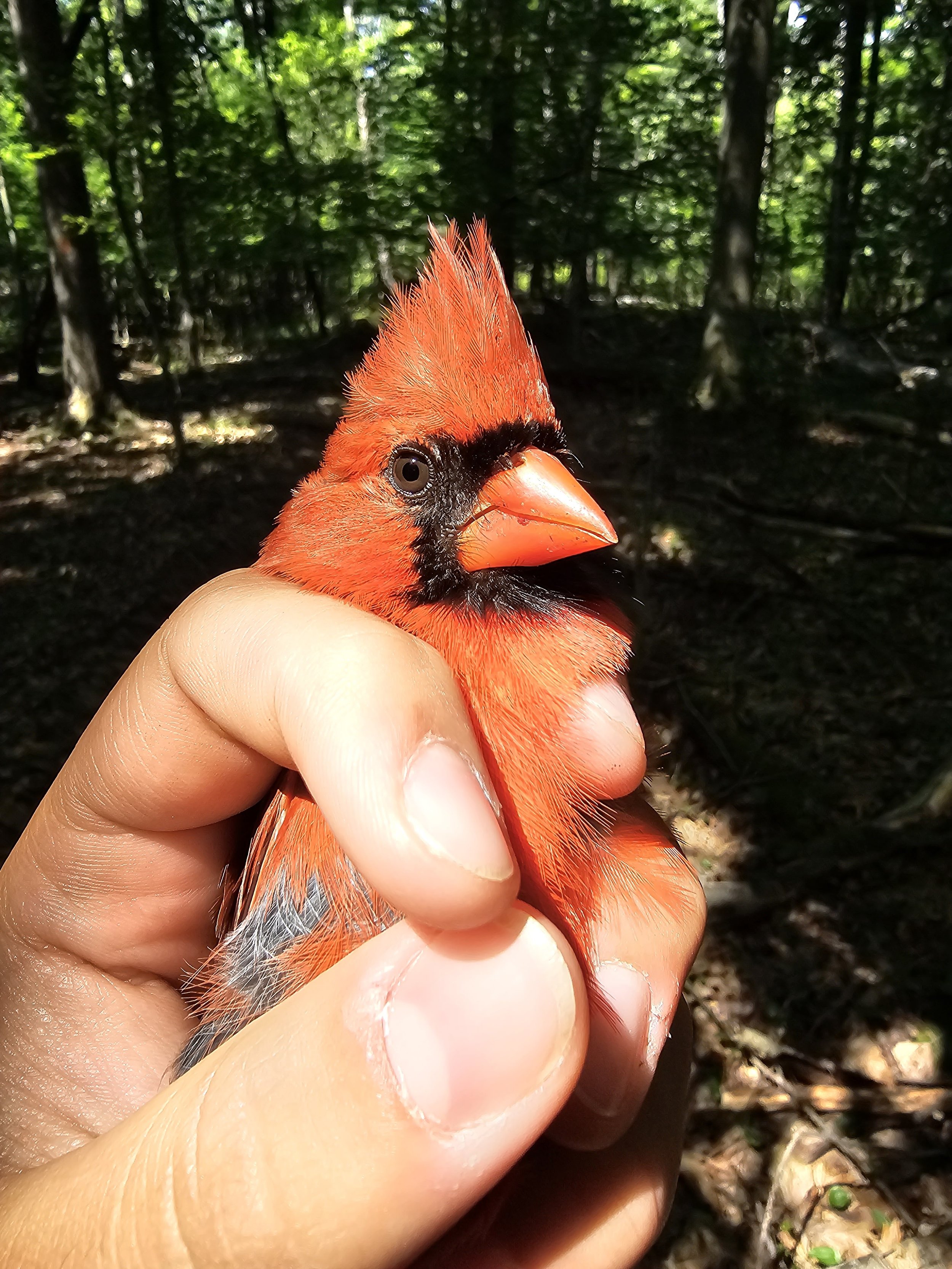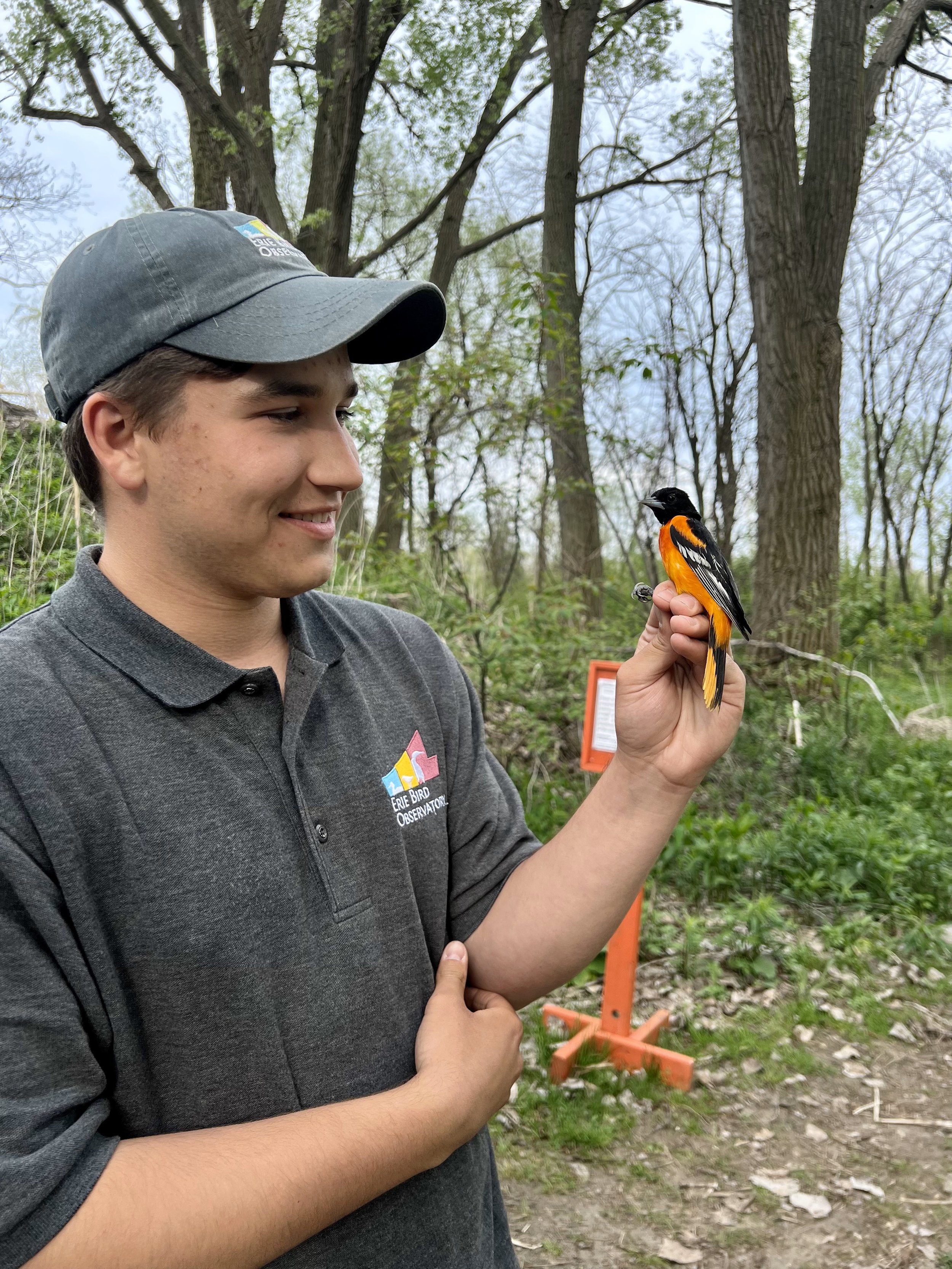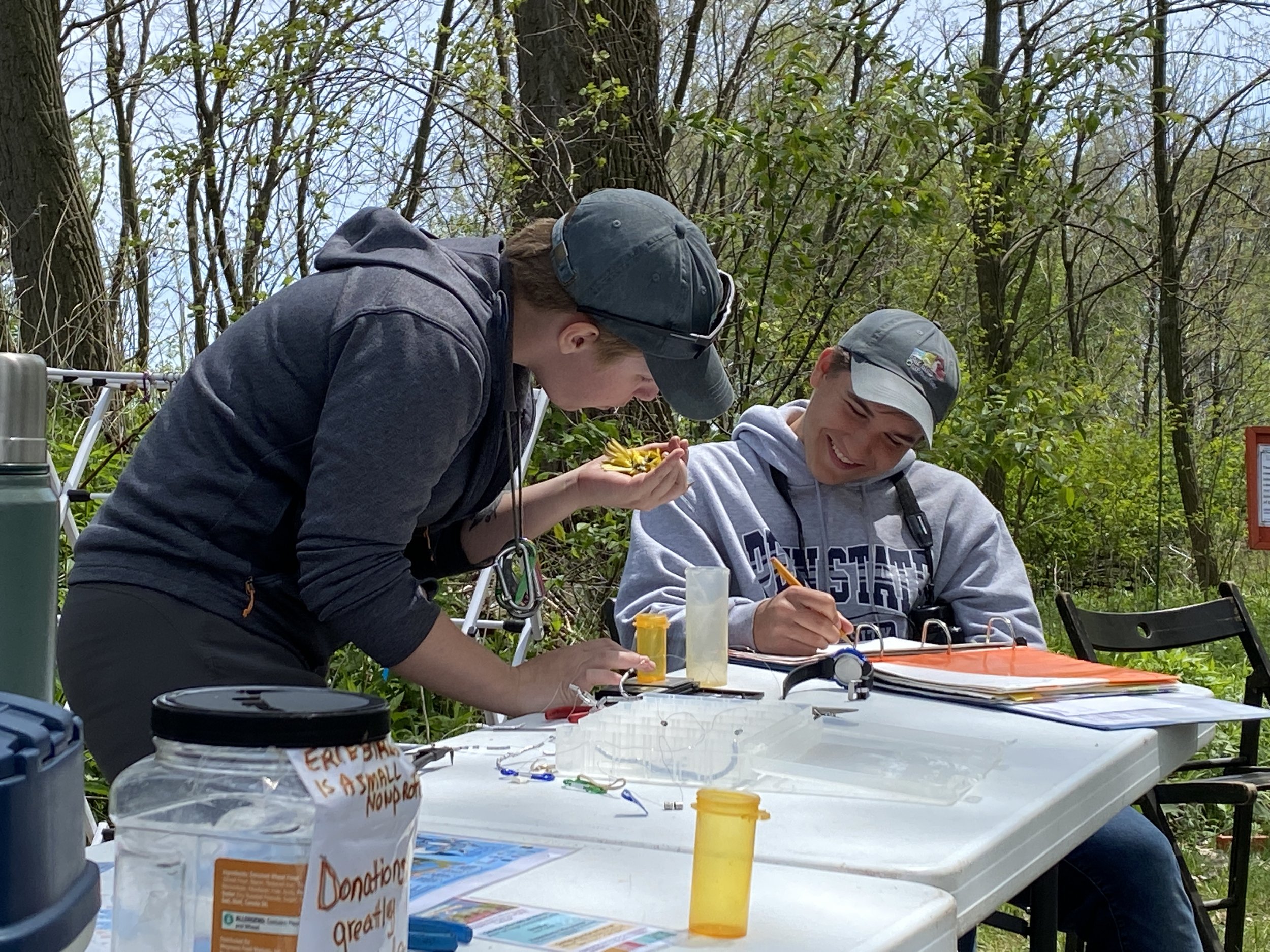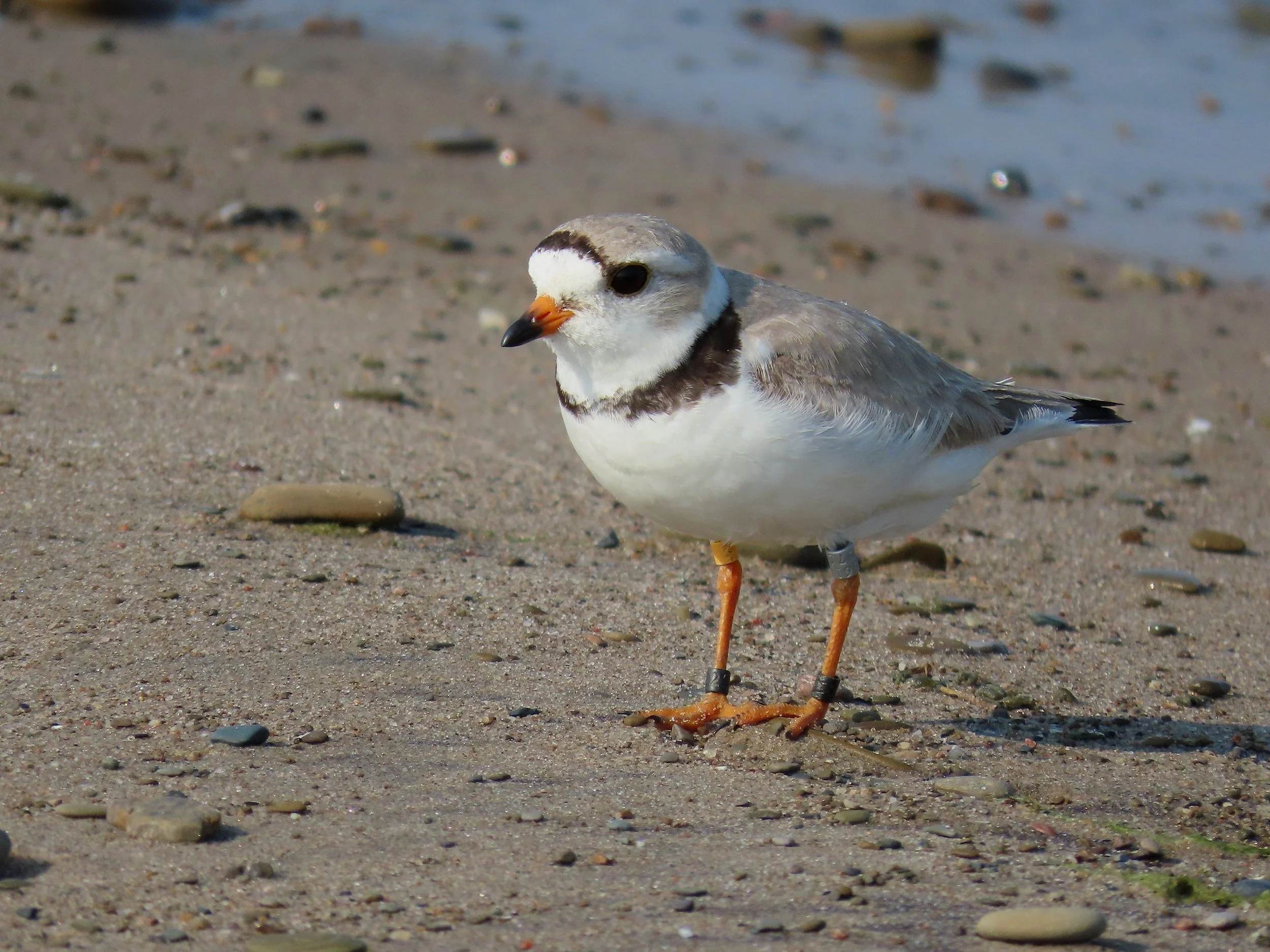A Season with Erie Bird Observatory
EBO’s Mary Birdsong sat down with Ripley Kindervater (RK) to talk about his internship with EBO in the 2023 season. Kindervater is currently a junior at Penn State Behrend majoring in biology. He is captivated by birds, reptiles, and amphibians.
EBO: What were your activities or projects during this internship?
RK: I helped at the EBO migratory bird banding station at Fry’s Landing and with the MAPS banding operation for breeding birds in Crawford County.* I also assisted with shorebird monitoring, did marsh vegetation surveys, monitored Bank Swallow colonies on Presque Isle State Park, and coordinated a breeding bird blitz team for the PA Society of Ornithology’s annual #blitz4birds fundraiser.
EBO: How were those two distinct banding scenarios alike or different from one another?
RK: Besides the Presque Isle station being for migratory birds and MAPS being for breeding birds, both banding stations gave me the opportunity to experience details about birds that one can never see in the field, like aging a bird from molt patterns and all the different protocols and data collection software associated with these banding efforts. The MAPS station follows a particular protocol that is repeated at other MAPS stations continent-wide that allows data to be compared equally, so learning those procedures was interesting. The MAPS location had secondary and mature forest habitat and the banding there made it clear to me how important preserving that habitat for breeding birds is.
